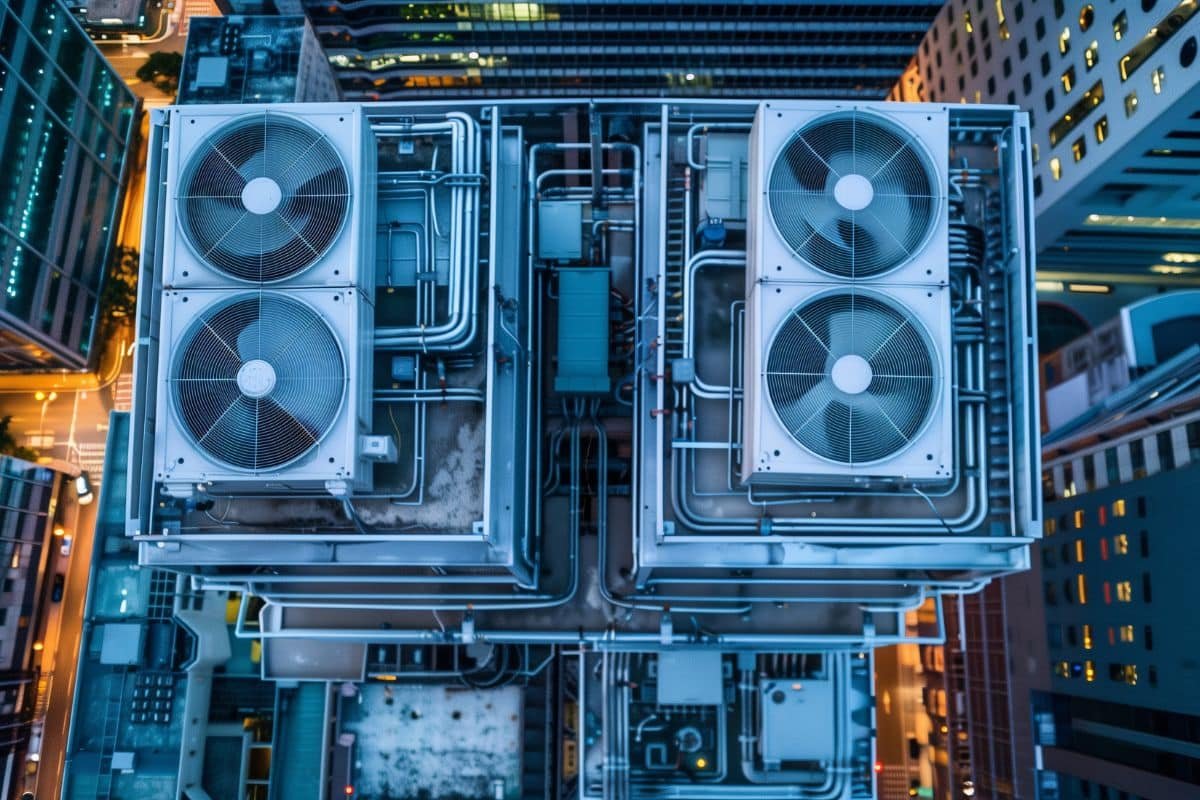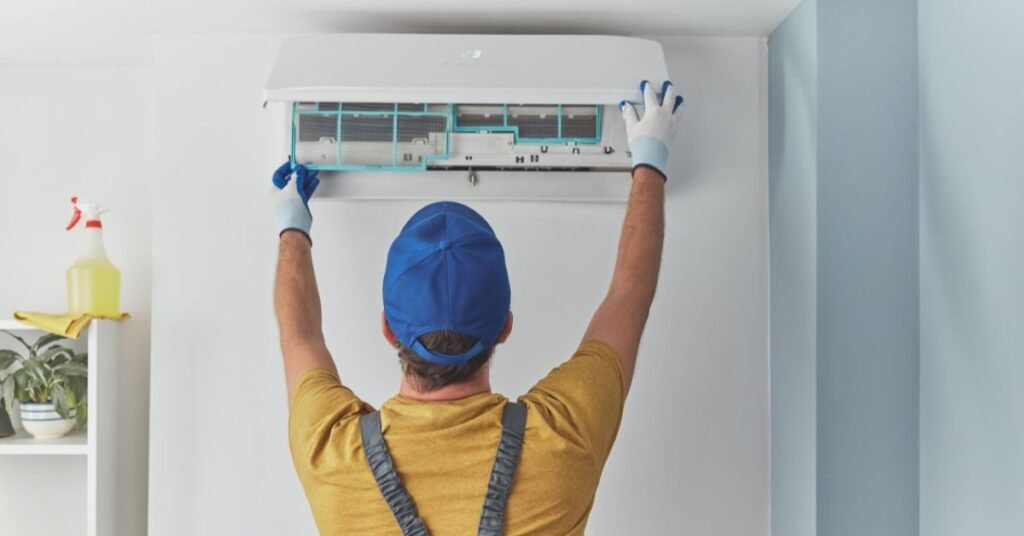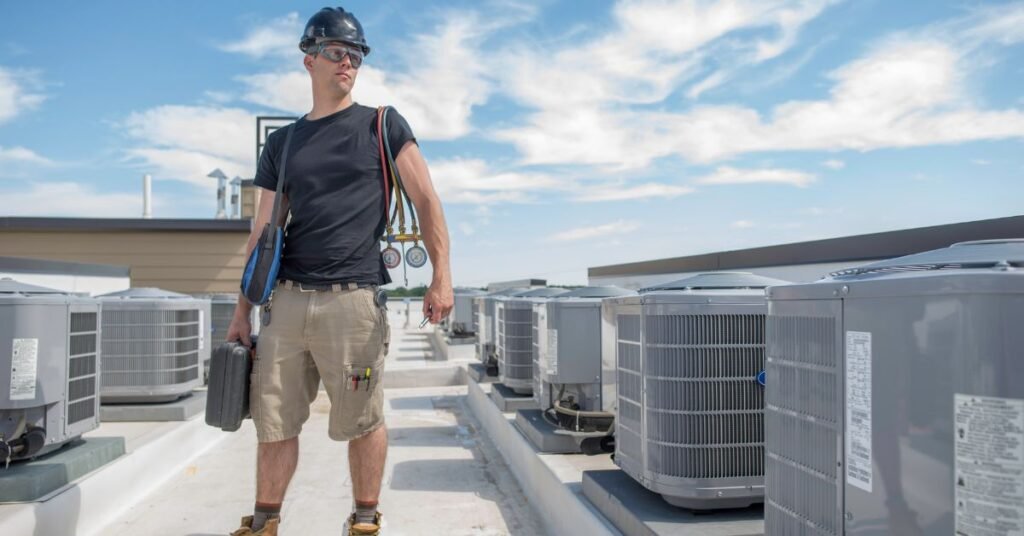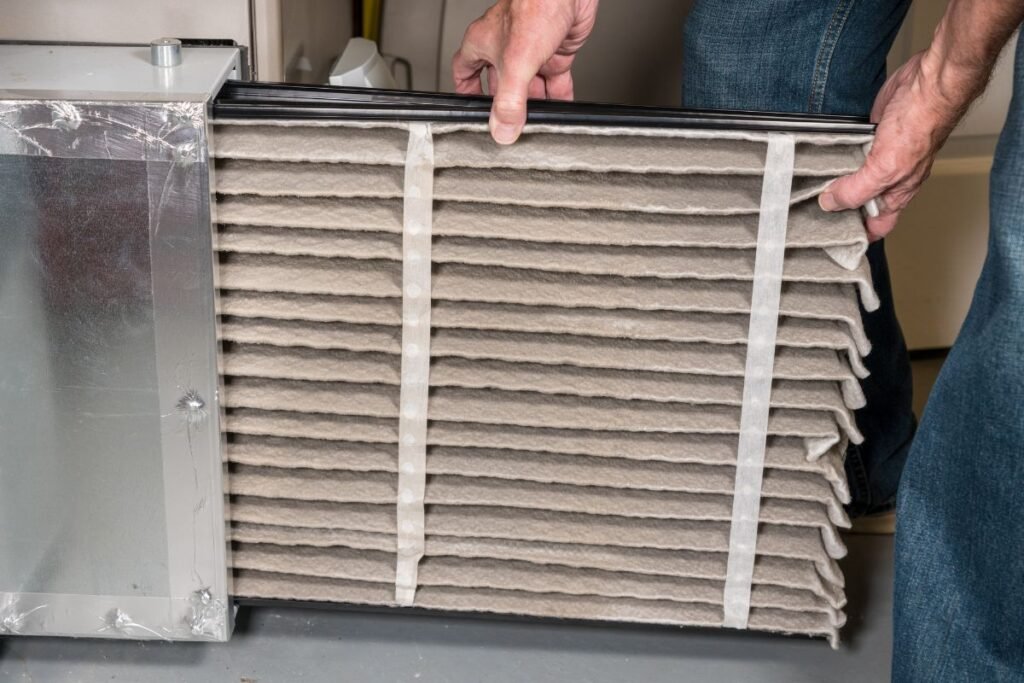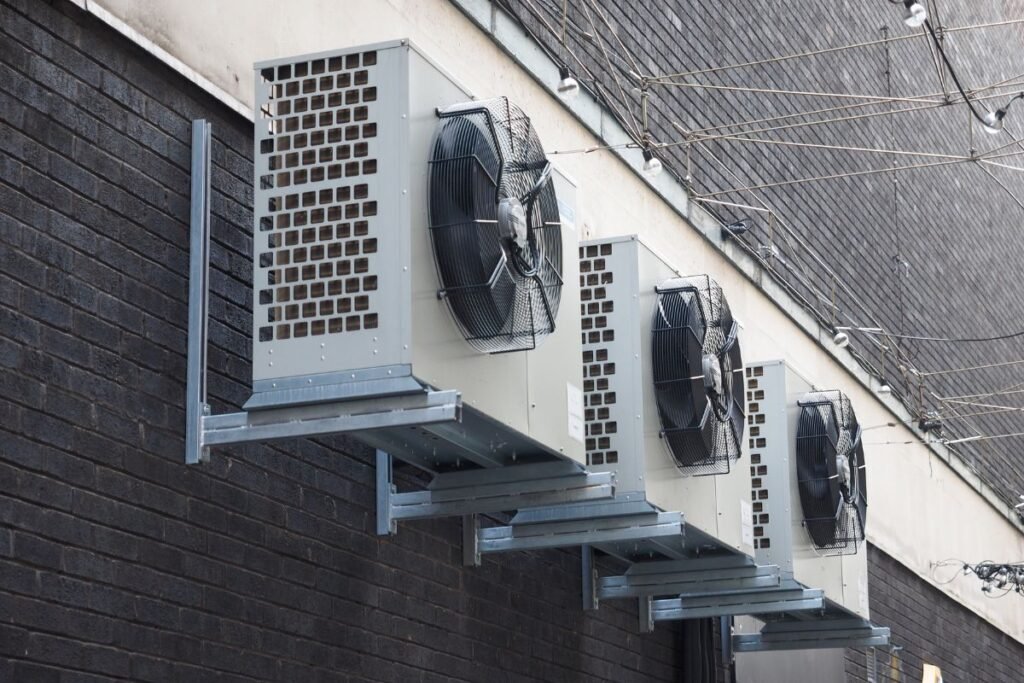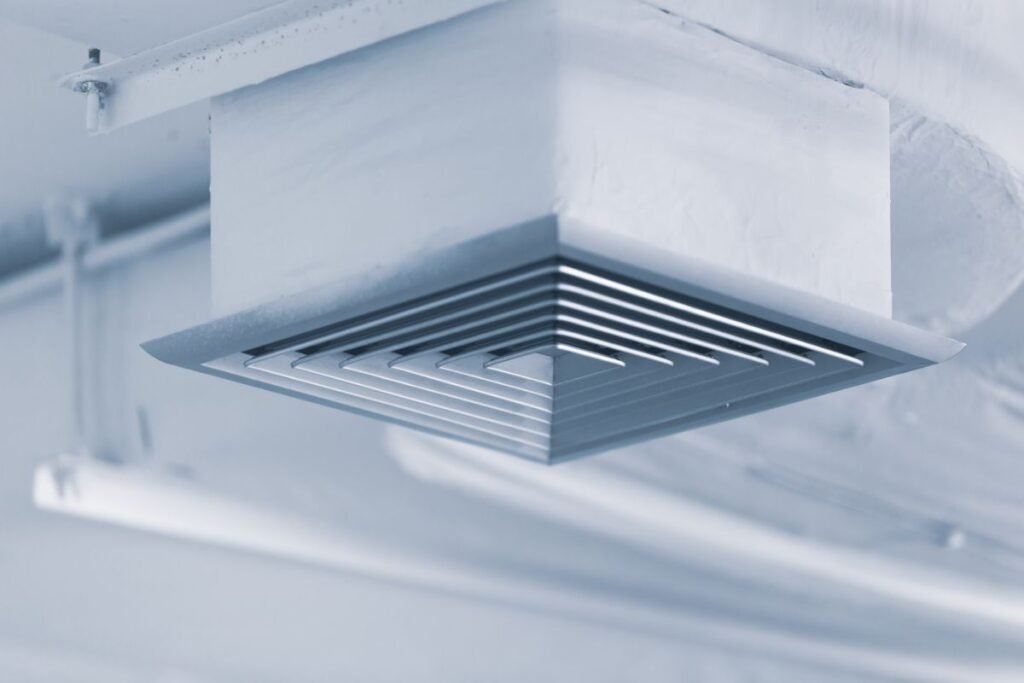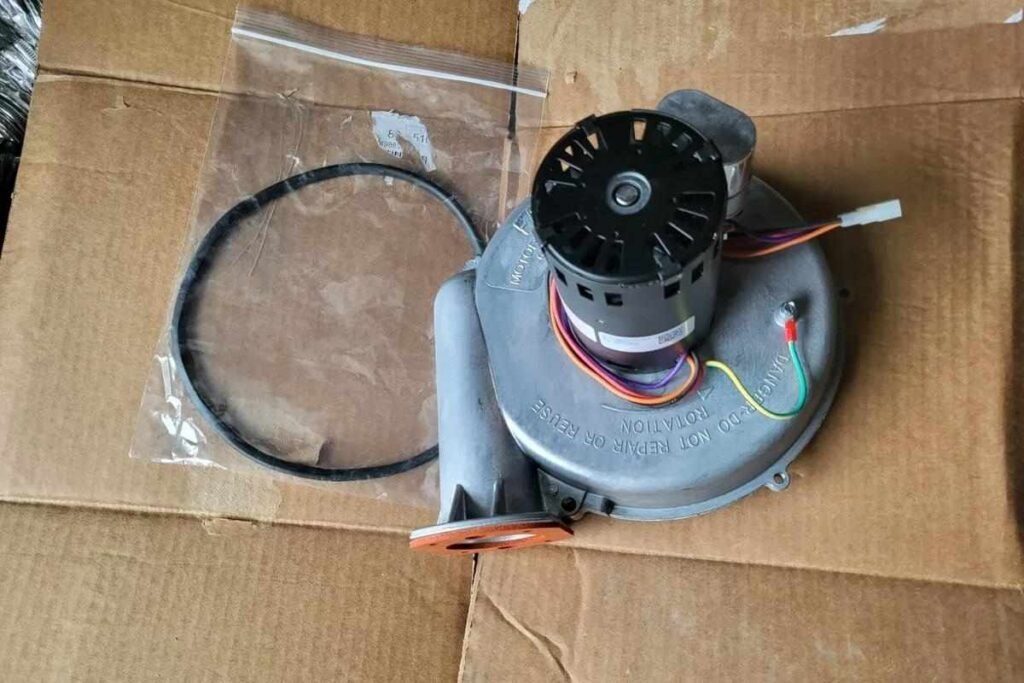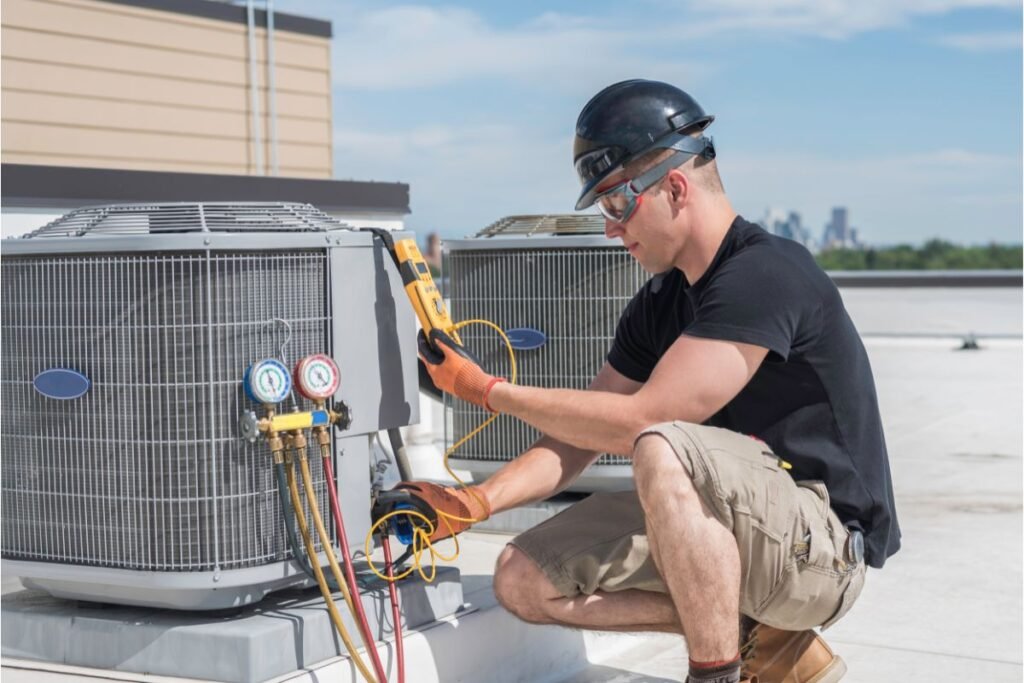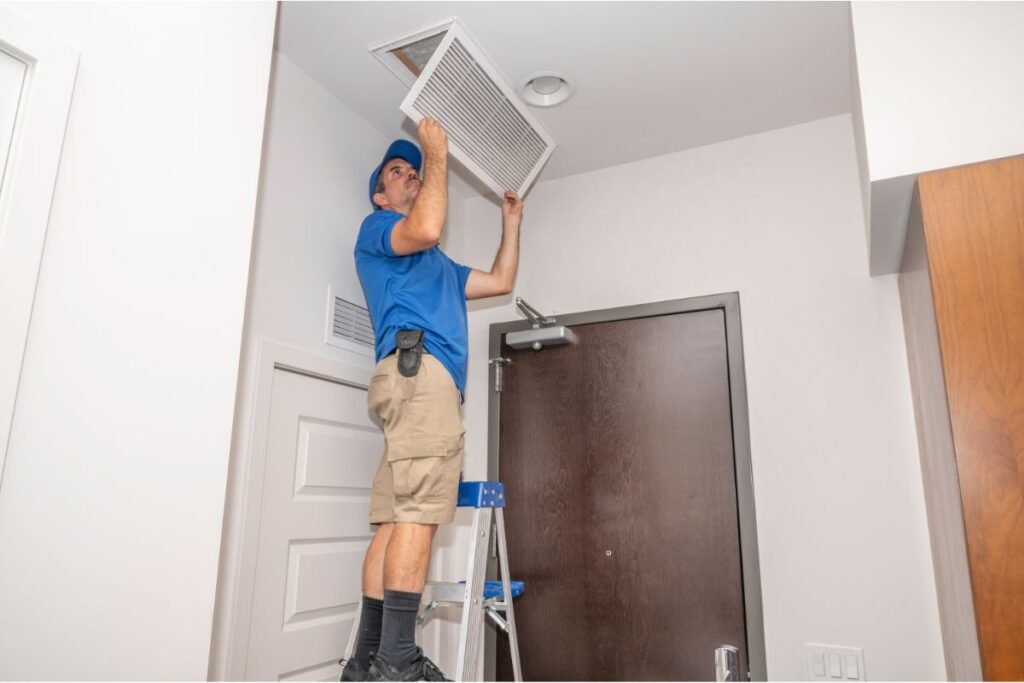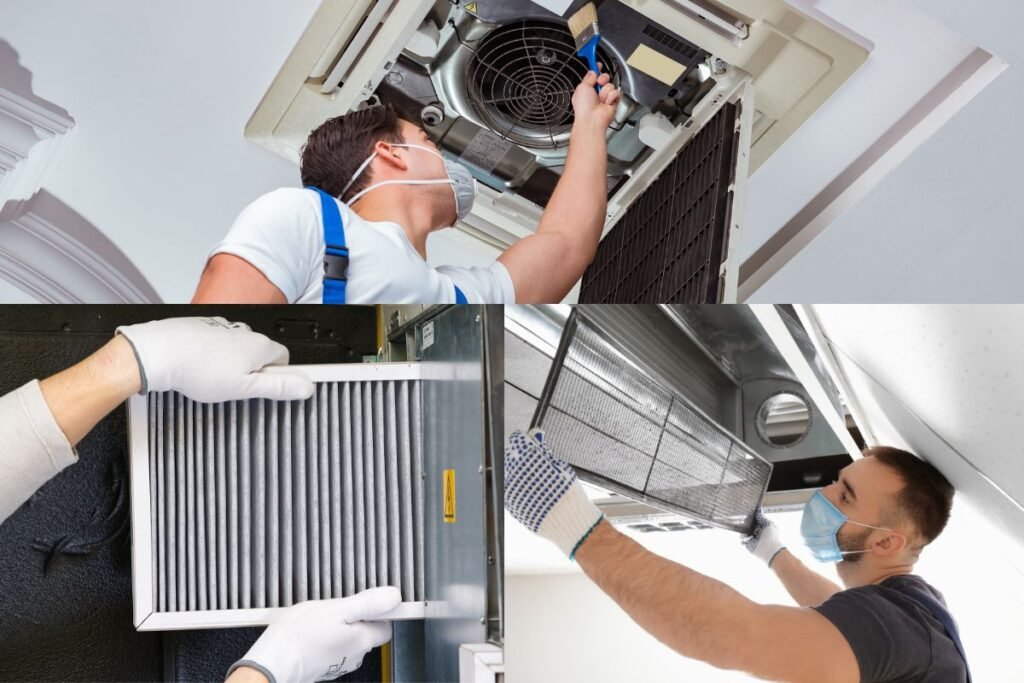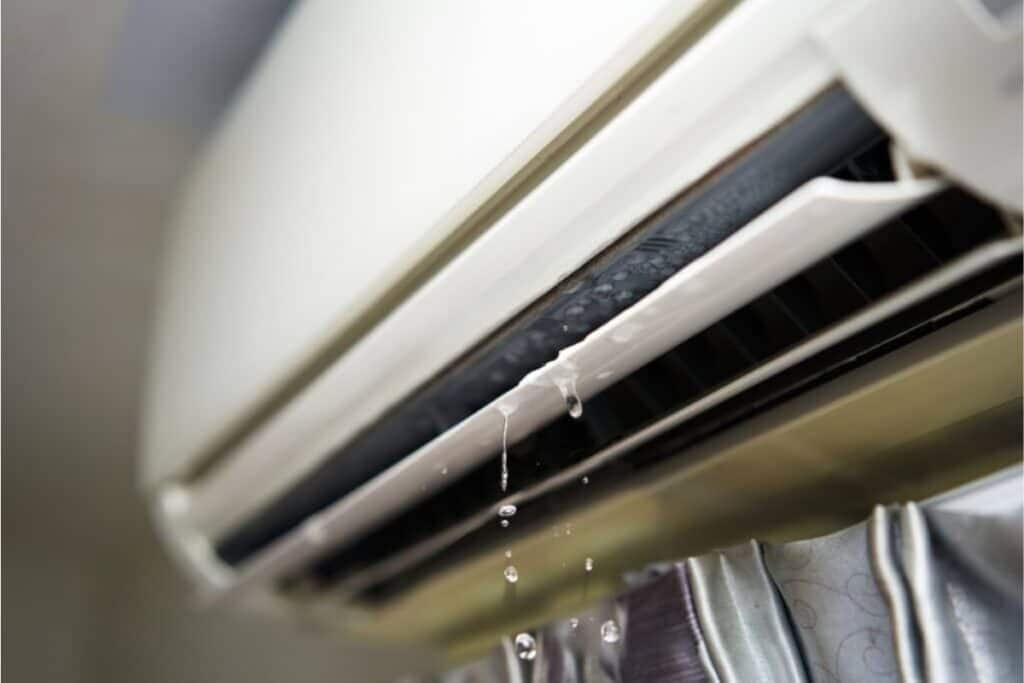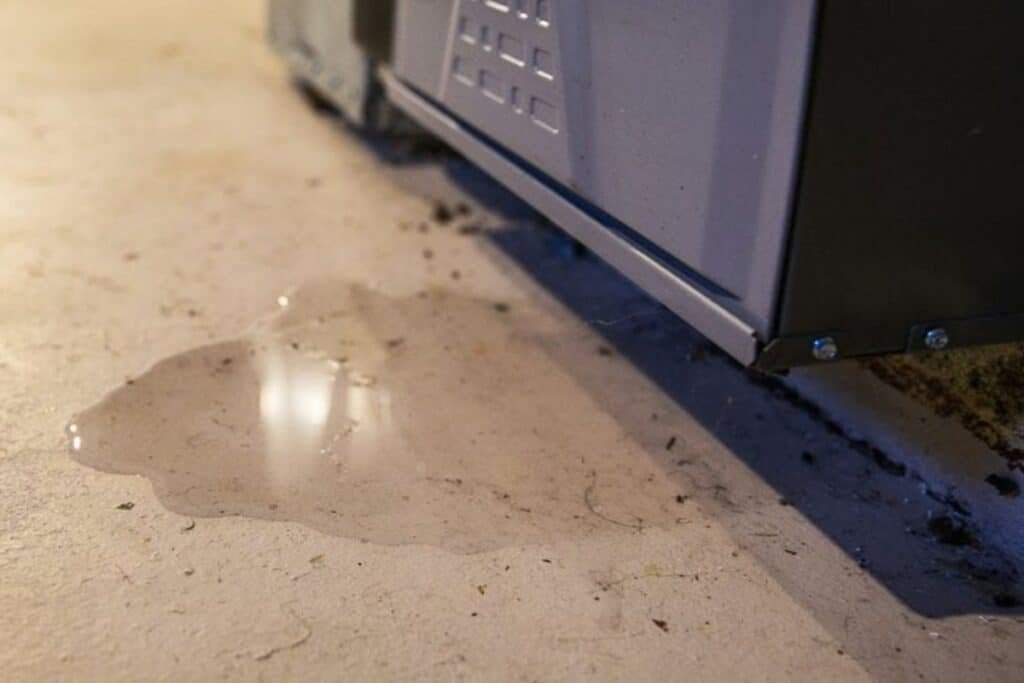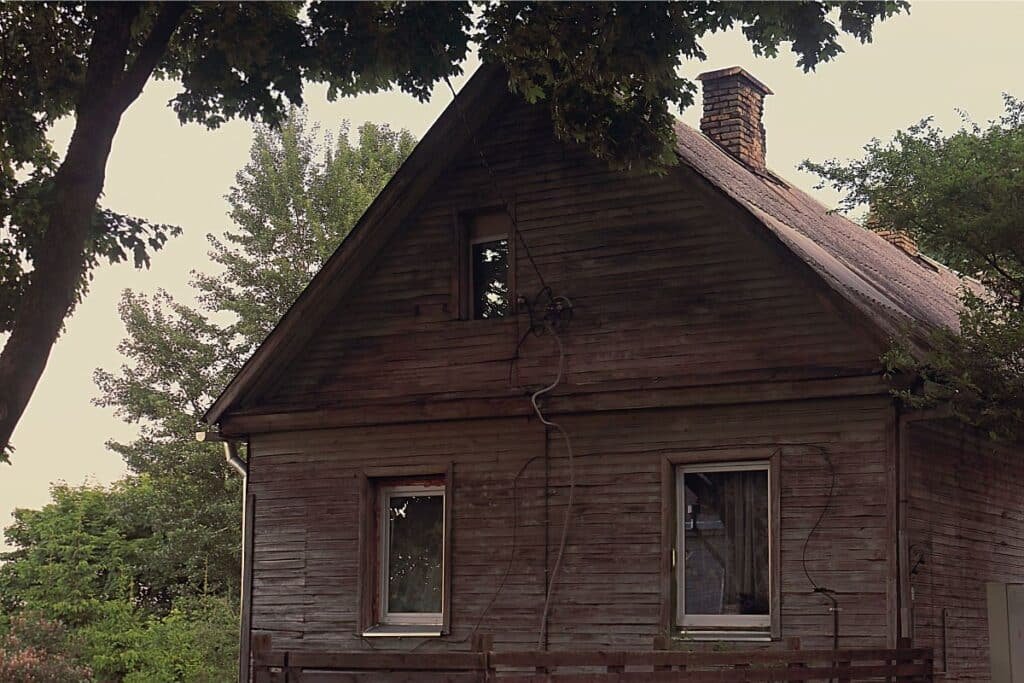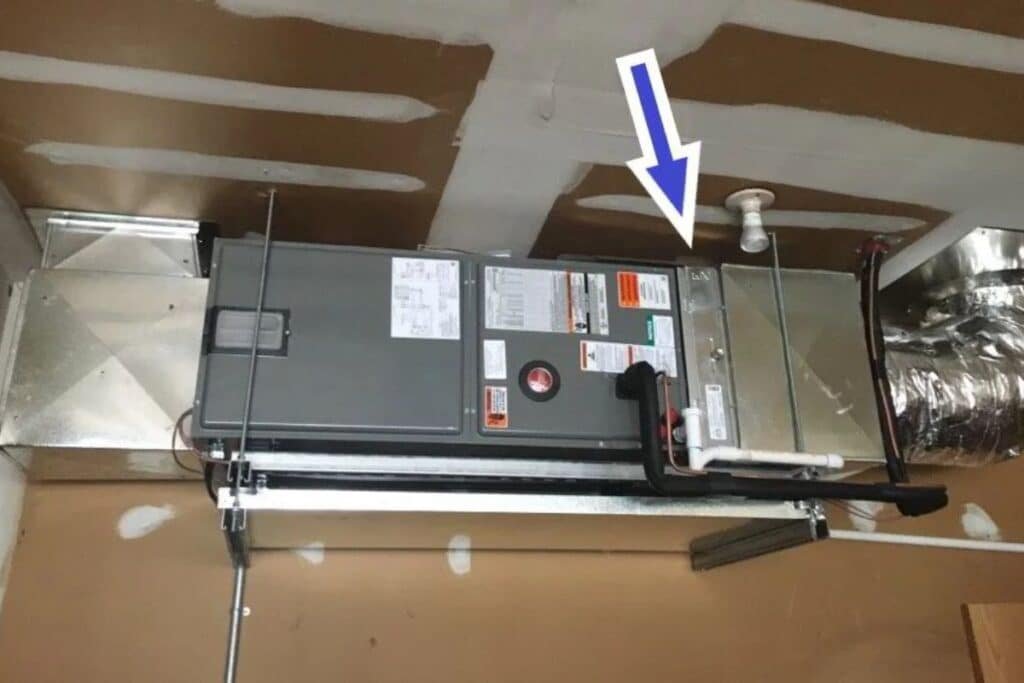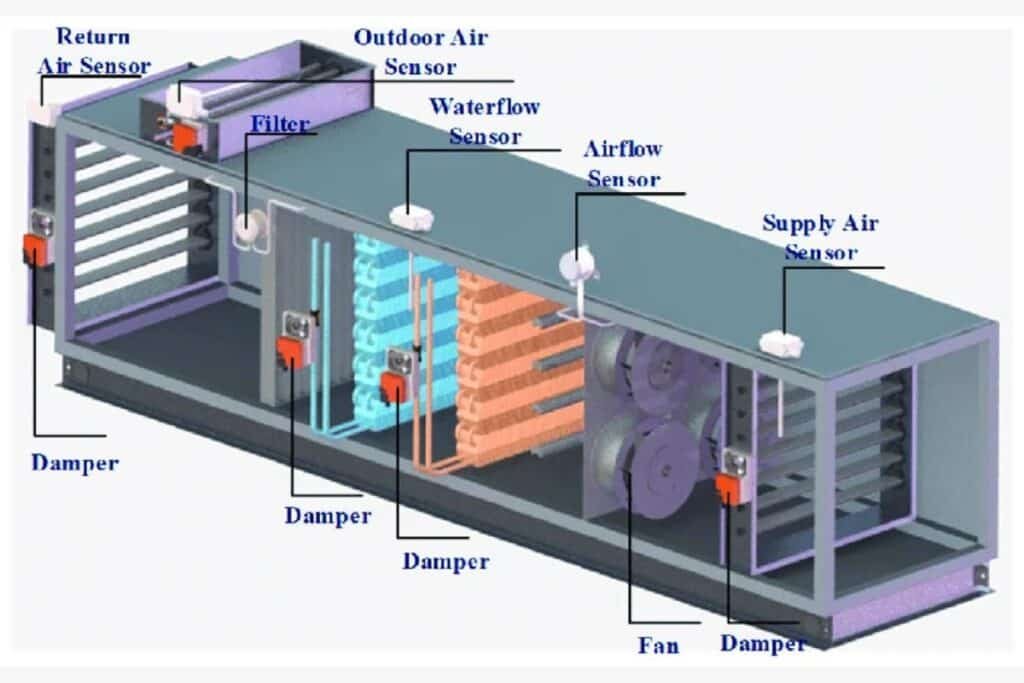Did you know replacing an HVAC system can cost between $3,500 and $30,000? The HVAC replacement cost depends on the type and size of your home. HVAC systems are responsible for almost 48% of your home’s energy use, so selecting the right one at the right cost can save you money and improve your comfort. If you’re dealing with high energy bills, uneven temperatures, or an aging system, it’s time to learn about its costs and how to make the best choice.
In this guide, we’ll cover:
- The average cost to replace an HVAC system is based on system type and size.
- How factors like climate, home size, and energy efficiency affect costs.
- Simple ways to save money, like using energy rebates and scheduling replacements during slower seasons.
- How to decide if you should install the system yourself or hire a professional?
By the end of this article, you’ll know how to avoid expensive mistakes so that choose the best HVAC system for your home and save money in the process. Let’s get started.
1. What Does the HVAC Replacement Cost Include?
Replacing your HVAC system involves multiple cost components, such as the unit price, labor, permits, and upgrades. Let’s explore these in detail.
HVAC Unit Costs by System Type
Different HVAC systems suit different needs, and their costs vary accordingly:
|
System Type |
Cost Range |
Best For |
Energy Efficiency |
|
Central Air |
$3,500–$7,500 |
Large homes with ductwork |
Moderate efficiency |
|
Ductless Mini-Split |
$5,000–$12,000 |
Small homes, room additions |
High efficiency |
|
Heat Pump |
$6,000–$12,000 |
Homes in moderate climates |
Dual heating and cooling |
|
Geothermal |
$15,000–$30,000 |
Eco-conscious homeowners |
Exceptional efficiency |
|
Packaged HVAC Systems |
$7,500–$15,000 |
Homes with limited indoor space |
Compact design, dual functions |
Labor is another significant expense:
Labor Costs
Labor costs depend on factors such as the complexity of the system installation, the geographic region, and the contractor’s expertise. Typically, labor makes up 30% to 50% of the total HVAC replacement cost. Labor costs can vary between $1,500 and $4,500, depending on the system and location.
- In Rural Areas: Basic installation costs $1,500–$2,500.
- In Urban Areas: Higher living costs in cities like Los Angeles or Chicago push labor costs to $3,000–$5,000.
If your ducts are outdated or damaged, expect additional repair costs of $2,000–$4,000.
Additional Fees
Other costs to keep in mind:
- Permits: Local governments may require permits, which can cost $500–$1,500.
- Disposal: Removing and recycling your old system typically costs $500.
- Upgrades: Adding smart thermostats ($300–$800) or upgrading electrical panels ($1,000–$3,000) increases the total cost.
What Factor Affects HVAC Replacement Costs?
Energy Efficiency Ratings (SEER/EER): Do They Save You Money?
A higher SEER rating means better energy efficiency and lower bills. While premium systems cost more upfront, they offer significant savings over time.
|
SEER Rating |
Upfront Cost |
Annual Energy Savings |
Best For |
|
14–16 |
Low ($3,500–$7,000) |
$150–$300 |
Budget-conscious homeowners |
|
17–20 |
Moderate ($6,000–$10,000) |
$300–$500 |
Mid-range homes, energy-conscious |
|
21+ |
High ($10,000+) |
$500+ |
Large homes or eco-conscious buyers |
How Climate Affects HVAC Replacement Costs in 2025
Where you live impacts the type of HVAC system you need. In hot climates like Texas or Florida, systems that cool effectively are essential. Central air systems cost $5,000–$10,000, while ductless mini-splits, which cool specific areas of your home, range from $6,000–$12,000. Look for models with energy-saving ratings to lower your bills.
In cold areas like Minnesota, heat pumps are ideal because they work for both heating and cooling. These systems cost around $8,000–$15,000 but help cut heating costs during harsh winters.
In humid regions like the Gulf Coast, systems with moisture control are necessary to keep your home comfortable and prevent mold. These cost between $6,000 and $14,000, depending on the type.
HVAC Replacement Costs by Home Size: What You Need to Know
The size of your home is one of the biggest factors in how much your HVAC system will cost. For smaller homes under 1,500 sq. ft., you’ll spend $3,500–$8,000 on options like single-room ductless systems or smaller central air units.
For medium-sized homes, between 1,500 and 2,500 sq. ft., central air systems cost around $6,000–$10,000, while multi-room ductless systems are slightly higher, at $7,000–$12,000. These systems keep your home comfortable while saving energy.
If your home is larger than 2,500 sq. ft., high-powered central air systems range from $10,000–$15,000, or you can consider geothermal systems at $15,000–$30,000 for long-term savings.
How to Choose the Best HVAC System for Your Home
Choosing the right HVAC system depends on factors like your home size, energy needs, and budget. Here’s a quick guide:
|
Factor |
What to Look For |
|
Home Size |
Ensure the system’s capacity matches your square footage. |
|
Energy Efficiency |
Opt for high SEER/EER ratings to save on energy bills |
|
Climate |
Choose systems designed for your local weather. |
|
Budget |
Consider upfront cost vs. long-term savings. |
HVAC Replacement Cost Comparison: Central Air, Heat Pumps, and More
|
System Type |
Cost Range |
Best For |
Key Features |
|
Central Air |
$5,000–$10,000 |
Medium/Large Homes |
Affordable and reliable cooling |
|
Heat Pump |
$6,000–$12,000 |
Moderate climates |
Dual heating and cooling |
|
Ductless Mini-Split |
$5,000–$12,000 |
Small homes/room additions |
Zoned cooling |
|
Geothermal |
$15,000–$30,000 |
Eco-conscious homeowners |
Long-term energy savings |
How to Save on HVAC Replacement Costs in 2025
Replacing your HVAC system can be more affordable if you plan ahead. You can save a lot of money by planning replacements for slower seasons. Additionally, using energy-efficiency rebates can further reduce costs. Here’s how.
The Cheapest Time to Replace Your HVAC System
Did you know that timing your HVAC replacement can reduce costs by up to 15%? Contractors are busiest during peak seasons. Summer for AC systems and winter for heating. To get the best deals, plan your replacement during the offseason.
For air conditioning systems, schedule your HVAC replacement in the winter, when demand is lower. For heating systems, aim for summer, since fewer homeowners are upgrading their heaters during warm weather.
Scheduling your replacement during these slower times helps you save money, avoid delays, and ensure you get the most skilled technicians for the job.
When Should You Replace Your HVAC System? 7 Key Warning Signs
Your HVAC system might need replacing if:
- Repairs are frequent and eat into your budget.
- Your energy bills keep climbing with no clear reason.
- Some rooms are always too hot or too cold.
- The system is over 15 years old and wearing out.
- Your HVAC is noisy, making strange sounds or rattling.
- Airflow feels weak, even at full blast.
- Your system uses outdated refrigerants like R-22, which are costly to replace.
DIY vs Professional Installation: What’s the Smarter Choice?
Replacing your HVAC system is a complicated job that requires precision and skill. While installing it yourself might sound like a way to save money, it often leads to costly mistakes. Here’s why hiring a professional HVAC service is the better choice.
Risks of DIY HVAC Installation
Installing an HVAC system yourself can create more problems than it solves. Here’s what can go wrong:
- Incorrect Setup: HVAC systems are tricky to install. If something isn’t done right, your system might not work efficiently. It can lead to higher energy bills and uneven temperatures in your home.
- Safety Risks: Mistakes, such as poor electrical connections or gas leaks, can cause serious hazards like fires or health problems.
- Voided Warranties: Most manufacturers require professional installation to keep the warranty valid. A DIY attempt could mean you’re on your own if something breaks.
- Expensive Repairs: Small errors, like a poorly sealed duct or a refrigerant issue, can cost hundreds or even thousands.
Example: A homeowner tried to install their own HVAC system but didn’t seal the refrigerant lines properly. This caused a leak, voided the warranty, and ended up costing $1,200 in repairs.
Why Professional Installation is Worth It
Hiring a professional HVAC installation ensures the job is done right. Here’s why it’s worth the investment:
- Correct Sizing and Setup: Professionals make sure your system is the right size for your home and install it for maximum performance and efficiency.
- Warranty Protection: A licensed contractor will follow all manufacturer requirements, so your warranty remains valid.
- Time-Saving: A professional can finish the job in just 1–3 days, saving you weeks of trial and error.
- Peace of Mind: Licensed contractors follow safety rules and double-check their work, so you don’t have to worry about future problems.
Need Professional Help? The team at Big Apple Air has the expertise and experience to handle HVAC installations safely and efficiently.
Conclusion:
Replacing your HVAC system is a smart way to reduce energy bills, improve comfort, and ensure your home stays efficient year-round. By understanding HVAC replacement costs, you can make the right decision without overspending.
Whether you’re looking at the average cost to replace an HVAC system, checking HVAC capacitor replacement costs, or exploring energy-saving upgrades, this is the perfect time to take action. A new system brings better performance, lower energy bills, and peace of mind.
Don’t let an old system drain your wallet or compromise your comfort. With available rebates, discounts, and expert guidance, upgrading your system can be smooth and affordable.
Your comfort matters. Contact Big Apple Air today for a free quote and take the first step toward a more energy-efficient and reliable home. Limited-time offers are here so don’t miss out on the savings!
Frequently Asked Questions
How much does it cost to replace an HVAC valve?
The cost to replace an HVAC valve usually ranges from $150 to $500. This includes both the parts and the work needed to replace it. If the valve is more complicated, it could cost more. It’s a good idea to ask a local HVAC expert for an exact price.
How much does it cost to replace an HVAC system?
Replacing your HVAC system can cost anywhere from $4,000 to $12,000. The price depends on your home’s size, the brand of the system, and how complicated the installation is. Make sure to get a few quotes to find the best deal.
How long does it take to replace an HVAC system?
Typically, replacing an HVAC system takes 1 to 3 days. The timeline may vary depending on the complexity of the installation and whether additional components, such as ductwork or electrical upgrades, are required. For a more accurate time frame, speak with your HVAC contractor.
Is HVAC replacement worth the cost?
Yes, HVAC replacement is often worth the investment. New systems are more energy-efficient, which can help reduce your monthly utility bills. Additionally, a new HVAC system requires fewer repairs, boosts home comfort, and may increase your home’s resale value. It’s a smart long-term investment.
How do I know if my HVAC system needs to be replaced?
If your HVAC system is over 15 years old, requires frequent repairs, or is no longer energy-efficient. It might be time for a replacement. Other signs include a significant increase in your energy bills or uneven heating and cooling. A licensed HVAC technician can help determine if replacement is necessary.
How can I lower the cost of replacing my HVAC system?
To lower the cost of HVAC replacement, consider obtaining multiple quotes from local HVAC contractors to compare prices. Additionally, choose energy-efficient models that may have higher upfront costs but can save you money on utility bills. Look for rebates or financing options through utility companies or government programs to further reduce the cost.
What is included in the cost to replace an HVAC system?
The cost to replace an HVAC system usually includes the new unit, labor for installation, and any parts like ductwork or electrical updates. There may also be extra charges for permits or removing the old system. Always ask for a clear breakdown of costs before moving forward with the replacement.
Can I save money by replacing my HVAC system myself?
Replacing an HVAC system is a complicated job that needs professional skills. Doing it yourself might lead to mistakes, safety risks, or even void the manufacturer’s warranty. Hiring a certified HVAC expert to install your system properly can save you money in the long run by preventing future issues.
How do I choose the best HVAC system for my home?
Picking the best HVAC system for your home depends on things like your home’s size, insulation, and climate. A professional HVAC expert can help figure out the right size system for your needs. When choosing a system, think about its energy efficiency and the brand’s reputation to ensure it works well and lasts longer.

